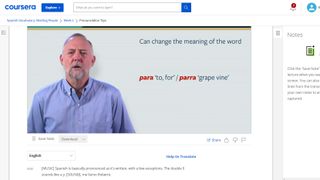If you have thought about upskilling yourself during the pandemic, you may have come across MOOC (massive open online course) providers like Udemy and Coursera. These e-learning giants have helped learners all over the world access free and paid courses in 15+ subject categories, reducing many barriers to success.
In fact, to aid students and furloughed workers, Coursera offered free classes for nearly a year. They also partnered with universities to provide credit-based, certified courses at a discounted rate.
Udemy, on the other hand, provided an open platform for anyone to start their own courses, helping people share their skills and knowledge while making a living out of teaching online.
Now that in-person classes are opening up again, MOOC platforms like these have continued improving the quality of classes they offer to retain learners. Both websites have made it into our round-up of the best online learning platforms, so which one is right for you? Here’s a guide highlighting the pros and cons of both so you can make the right decision.
Udemy vs Coursera: Course Content
Udemy has 32,000+ classes across a wide range of subjects including business, coding, personal development, music, and more. You can even find unique and niche classes for skills like Wing Chun (Martial Arts), negotiation, and cryptocurrency trading.

Coursera offers fewer (3,000), but high-quality courses on subjects like data science, social sciences, engineering, health, language, and more. Coursera also has specialized learning paths (a series of courses) to provide a deeper understanding of your chosen subject. We really rate the tech classes on both of the platforms, but think Coursera provides some of the best coding courses online in 2021.
The key difference between courses on Udemy and Coursera is that Coursera offers professionally accredited degrees along with smaller, academic “MasterTrack” programs that offer a portion of total college credits for a Master’s degree. Udemy courses aren't accredited, but they do cover a wider range of subjects.
Which one should you choose? If you like learning about a wide variety of topics, choose Udemy for its massive course library. If you are looking for a deeper, potentially harder course on a subject you already know something about, choose Coursera’s Specializations or MasterTrack programs.
Udemy vs Coursera: Course quality
Anyone can create a course on Udemy so the quality can differ from course to course. However, Udemy does make it easy to see course reviews and star ratings from previous students, so you get a good idea of how well liked it is.
Most Udemy courses are designed with solo learners in mind and don’t encourage community learning. If you enjoy grading your peers’ work and showcasing your projects after the class is over, Udemy may not be the right e-learning platform for you. However, if you like learning at your own pace without having to submit any projects, you will appreciate these self-focused courses.

Courses on Coursera are strictly offered by professional accredited institutions, so you're likely to receive a high quality of training. We did notice in our Coursera review that some courses on the platform are a little dated, however, like Udemy, you can check student reviews on individual modules to make sure they're high quality before you commit to paying.
Some of the more expensive credit-based classes and online degrees provide nearly the same teaching material as an in-person class, ensuring you are ready for the next step in your education and/or career.
Most teachers here are established experts in their field and may engage with learners, especially during project-based modules. Courses on Coursera offer a mix of solo, self-paced, and synchronized community learning. Students can showcase their projects and offer feedback on each other’s work, creating a friendly, collaborative environment.
Which one should you choose? If you are looking for a guaranteed high-quality course, opt for Coursera, where lessons are taught by respected professionals in the industry. If you need a quick upskilling course to complete in your own time, without the pressure of assignments and reading other pupils' work, Udemy has much to offer.
Udemy vs Coursera: Ease of use
Udemy is quite user-friendly. All courses are neatly divided into searchable categories that are further divided into subcategories to help you find your desired course faster. You can also filter classes by ratings, language, price, and other key metrics to narrow down your search. We also like Udemy’s video player that lets you control your subtitles, streaming quality, speed, etc.
Coursera is slightly trickier to navigate. The homepage often includes the benefits of joining the platform rather than offering a glimpse of the classes themselves, which makes it harder for new visitors to find what they are looking for. However, users do have a handy search bar at the top along with an “Explore” button that lets you browse through available course categories.

Just like Udemy, Coursera’s video player is quite functional, offering a running transcript with adjustable speed and streaming quality.
Which one should you choose? Both platforms offer a neat navigation system with a helpful search feature, so if you are selecting based on ease of use, either is fine.
Udemy vs Coursera: Price
Both Udemy and Coursera offer a buy-as-you-go model where you can pay for the courses you wish to take. Coursera takes it a step further by offering a subscription where you can access a series of courses at a fixed fee ($39-$79, depending on the “Specialization” you are buying).
Coursera also offers accredited degree programs that cost anywhere between $300-$1,000 per credit hour, so you pay $10,000+ on a complete degree program.
Udemy is more affordable with courses ranging from $19 to $199.99 a course. But it’s important to note that most courses on Udemy are not accredited.
Which one should you choose? If you are looking for a budget option for personal upskilling, Udemy could offer the right mix of affordable courses for you. If you have the capacity to spend and need a professional certificate, Coursera offers many reputable courses and degree programs from accredited universities.
Final Verdict: Udemy vs Coursera
If you value studying with a community of learners working through the same projects in a synchronized session, choose Coursera. If you prefer finishing your courses by yourself, opt for Udemy where you don’t have to worry about deadlines and grades.
Finally, the key deciding question is: Are you learning something to quickly brush up on your skills, or are you looking for a professional program to advance your career?
Udemy is ideal for fast and easy but unaccredited learning while Coursera is a valuable resource for accessing expensive but widely recognized credit-based courses and degrees.



